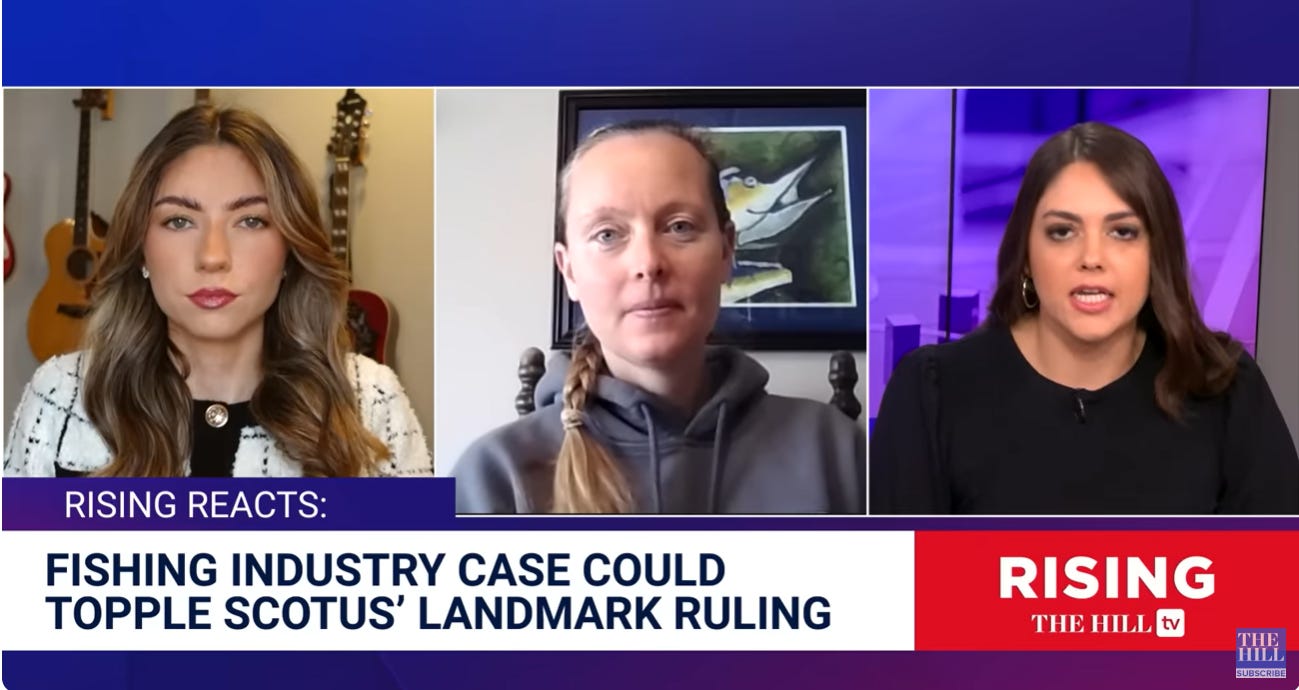The sole issue at hand in a case that comes before the U.S. Supreme Court today - Loper Bright Enterprises v. Raimondo - is whether the legal doctrine known as the Chevron Deference should be upheld. This longstanding doctrine originated from a 1984, 6-0 decision in a case styled Chevron U.S.A., Inc. v. Natural Resources Defense Council, Inc.; thus, the name.
Put simply, the Chevron Deference holds that the federal bureaucracies should be allowed to compile regulatory actions without interference from the courts. It’s more complex than that, obviously, but this is the basic principle at play. The practical and inevitable outcome from this ludicrous decision has been to enable the exponential expansion of federal regulations and the bureaucracies that promulgate and enforce them.
Basically, if Congress statutorily delegates a matter to a regulatory agency without issuing explicit guidance, then, as long the agency’s regulatory action comprises a reasonable interpretation of the statute, the Chevron Deference holds that courts must defer to the agency’s wisdom. The inevitable outcome is agencies with almost unfettered rulemaking authority, since congress seldom promulgates laws containing explicit rulemaking guidance.
Keep reading with a 7-day free trial
Subscribe to Energy Transition Absurdities to keep reading this post and get 7 days of free access to the full post archives.




